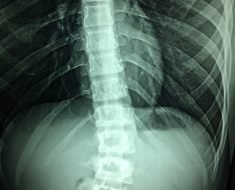
Women diagnosed with an infection during delivery had a much greater risk of stroke after delivery, according to preliminary research to be presented in Honolulu at the American Stroke Association’s International Stroke Conference 2019.
“Even though it is rare, maternal stroke has been increasing in the United States,” said Eliza C. Miller, M.D., study lead author and assistant professor of neurology in the Division of Stroke and Cerebrovascular Disease at Columbia University Irving Medical Center in New York. “Women who have infections at the time of delivery should be counseled about the signs and symptoms of stroke, such as severe headache, vision changes, speech difficulty or sudden weakness, and the need to seek immediate medical attention if they experience these symptoms.”
Researchers examined more than 3.5 million delivery hospitalizations from the 2013 Healthcare Cost and Utilization Project National Readmissions Database, which compiles information on hospital care throughout the United States. Out of 79,656 women who were readmitted to the hospital within one month after delivery, 225 were readmitted for stroke.
Researchers found:
- A strong relationship between infections, including bladder infections, pneumonia, and sepsis (a serious blood infection) during hospitalization for delivery and stroke within the following month.
- Women with an infection during delivery hospitalization were more than five times as likely to be readmitted to the hospital for stroke.
- Women readmitted for stroke were more than three times as likely to have had an infection during their delivery hospitalization, compared with women readmitted for other reasons.
- The increased stroke risk occurred regardless of whether women had pregnancy-related .
“These results reflect the diversity of the United States and are widely generalizable to the U.S. population of women of childbearing age,” Miller said. “At the same time, the number of stroke readmissions was small, so it’s important not to draw the conclusion that everyone who has an infection is going to have a stroke. The study shows an association but does not prove that the infection caused the stroke.”
Information on hospital care could not provide details about other potential stroke risks, researchers noted.
Earlier work by these researchers linked infections, especially of the bladder, to stroke risk during delivery hospitalization and among women with pregnancy-related high blood pressure, or preeclampsia. Since the majority of pregnancy-related strokes occur after delivery, often after women are sent home from the hospital, the current study focused on the period after delivery.
Source: Read Full Article




